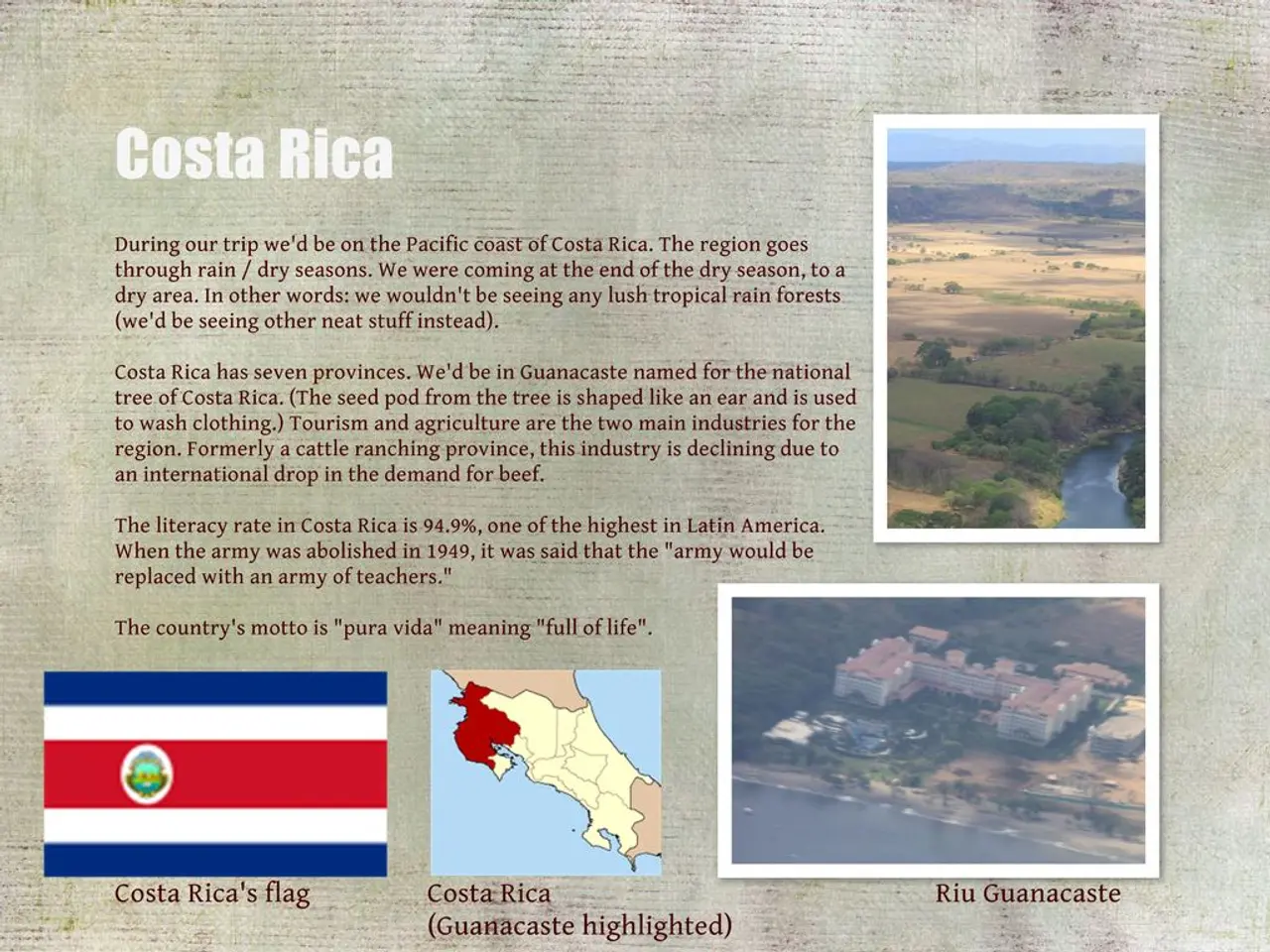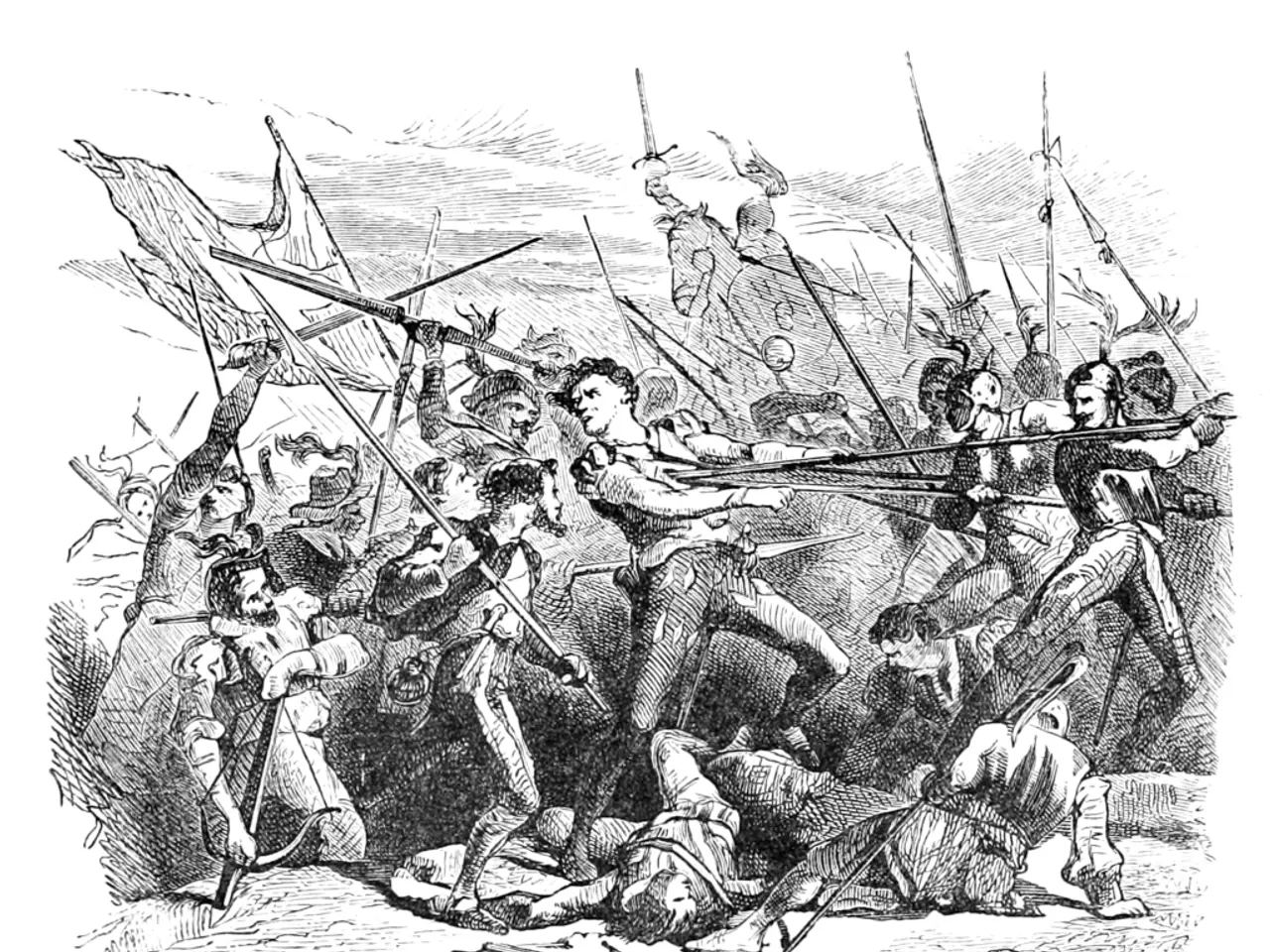"Hollywood under scrutiny for actions during Israel's conflict with Gaza"
This past week, independent grassroots group Cinema For Gaza gathered over a remarkable $326,000 for Medical Aid for Palestinians (MAP) with the help of cinematic luminaries such as Tilda Swinton, Ayo Edebiri, and Josh O'Connor. In its infancy as a coalition of UK-based filmmakers and authors, the group initially auctioned off prizes like movie roles and Zoom mentoring sessions with directors. However, the project quickly scaled up to something much grander—reflecting the zeitgeist of the moment.
For its audience, the undertaking was not only intriguing but carried an undercurrent of liberation. People finally had a chance to vocalize their support for Palestine without fearing backlash or professional consequences. As the tide progressively shifts, particularly within the film industry, two pivotal influences contributed significantly to the newfound audacity.
The first revealing moment came when Jonathan Glazer accepted the Best International Feature Film for The Zone of Interest at the Oscars earlier this year. His uncompromising speech voiced concern for Palestinians during ongoing genocide, earning initial criticism but ultimately gaining noteworthy support from fellow "Jewish artists, filmmakers, writers, and creative professionals." This gathering of solidarity was a testament to the courage that artists like Glazer inspire in one another.
The second turning point arrived at the start of the month, prompted by the Israeli strikes that killed seven aid workers from the World Central Kitchen, eliciting widespread condemnation. This was the first time the press united in horror over the fate of Western humanitarians, rather than Palestinian children, making headlines that were harder to ignore.
One of the key forces behind Cinema For Gaza, journalist Hanna Flint, commented on the power of collective voices to encourage solidarity, pointing out the initial fear of speaking out after the 7 October attacks. Nowadays, it's heartening to see this bravery displayed openly in the film industry.
However, it's also crucial to recognize that numerous powerful industry figures remained silent for months, terrified of damaging their reputations. Those who did show supportive voices early on were few and far between, with Melissa Barrera's dismissal from the Scream franchise serving as a clear message of warning. Barrera was fired in November 2025 for expressing her opinions on Israel's alleged genocide and ethnic cleansing, views that have now gained widespread acceptance.
Saagar Shaikh of The Marvels defiantly spoke out against the silence in Hollywood, stressing that people in the film industry should use their voices to stand up for what they believe in, even if it risks their careers. As he put it, "Everybody's got a voice. If you're not using it, why are you here?"
It's not an understatement to say that Hollywood was seemingly mute during the early months of the war, as silent as it was during the silent era. Meanwhile, the film industry continued to carry on as usual, seldom pausing to acknowledge what was happening around them.
Notable exceptions occurred when organizations like the International Documentary Festival Amsterdam and the Berlin Film Festival refused to show support for the phrase "from the river to the sea," a call for freedom, sparking heated debates about artistic expression and ethical responsibility.
Various other arts organizations worldwide cancelled events and collaborations with artists and writers backing Palestine. However, it's important to remember that Cinema For Gaza took the initiative to attend marches, share news, and promote fundraising events, demonstrating exceptional leadership within the film community during this tumultuous period.
- The overwhelming support shown for Palestinians through the Cinema For Gaza campaign on social media reflects a growing public opinion against war-and-conflicts in the Middle East.
- The media's recent coverage of the Israeli strikes that killed aid workers from the World Central Kitchen has shifted focus towards the plight of Western humanitarians, politics and general-news.
- In the film industry, artists like Jonathan Glazer and Hanna Flint are using their platforms for analysis and discussion on the ongoing Palestinian-Israeli conflict, entertainment, and social-media.
- Melissa Barrera's dismissal from the Scream franchise serves as a reminder of the fear and consequences that some artists face for expressing their opinions on war-and-conflicts in the Middle East, politics, and general-news.
- Despite the silence in Hollywood regarding the Palestinian-Israeli conflict, some artists such as Saagar Shaikh of The Marvels are speaking out, urging their fellow colleagues to use their voices for political activism and social change, entertainment, and politics.
- The international film festivals' decisions to withhold support for the phrase "from the river to the sea" have sparked debates on artistic expression and ethical responsibility, entertainment, and politics.






